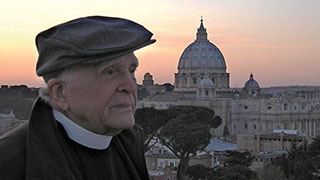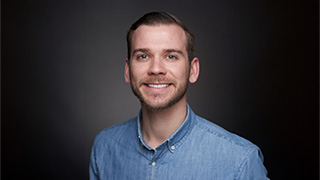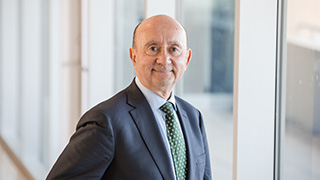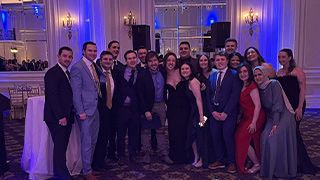Seton Hall Faculty Lead International Discussion on Diversity, Equity and Inclusion
Wednesday, May 18, 2022
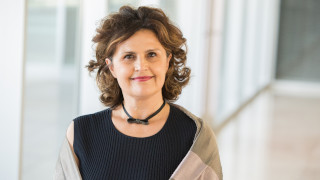
At the meeting, Justin Anderson, Ph.D., Associate Professor of Moral Theology at Immaculate Conception Seminary School of Theology, presented his current research that represents a Catholic view of diversity. Anderson’s work on this topic is set to be published in Logos this summer.
Murzaku represents Seton Hall University in the leadership role of this intercontinental IFCU working group. In attendance at the meeting were university professors and administrators from the United States, Canada, Belgium, the Democratic Republic of Congo, Israel, Scotland, Mexico and other nations. Seton Hall University—in particular, through its Catholic Studies Program—is considered a model of the effective integration of the Church’s dialogue with disciplines such as history, philosophy, diplomacy, the sciences, and more. Interdisciplinarity is at the heart of a holistic understanding of the roots of the authentic appreciation of diversity in the Catholic Intellectual Tradition.
Anderson and Murzaku both serve on Seton Hall committees that are delving into the role of diversity within the University community, and Anderson’s research explores some of the philosophical and theological underpinnings of the value that a Catholic institution of higher learning should place on diversity in Creation, and specifically within humankind.
When speaking of diversity, Anderson emphasized that his view is "a Catholic view"—not "the Catholic view." His research on diversity is rooted in the thought of St. Thomas Aquinas and Alasdair MacIntyre. The outline he shared with the members of the working group provides a framework for faculty and administrators to consider issues of diversity, enlightened by the Catholic Intellectual Tradition.
Anderson explained that based on Aquinas’s thought, diversity in Creation can be understood as necessitated by the magnitude of God's goodness. No one creature can reflect all of God's goodness; rather, each individual reflects different facets of God's goodness in different ways. Further, diversity rests in the concept of wholeness—harmony is necessary to diversity. Anderson explained: "Authentic diversity that reflects the Creator's benevolent plan is something that becomes an occasion of praise and of joy."
From this understanding of Creator-based diversity, Anderson brought up the issues of racial and cultural diversity, diversity of human action, and religious diversity.
Further discussion by all attendees, on five continents, began with and ultimately returned to the idea of a definition of diversity. Participants conversed about whether it is necessary to define diversity in the context of a Catholic university, the conflicts that can arise when definitions differ, and how the definitions can coalesce to produce an authentic reflection of God's goodness in creation. One participant suggested that as a way to approach a definition, perhaps the place to begin is in images that express individual elements of authentic diversity.
Discussants expressed the importance of appreciating diversity as an issue of human dignity, emphasizing that diversity should not be a political issue, and they raised the issue of the Catholic university’s role in this area. The participants shared their perspectives from the on-the-ground realities of their different locations, showing that the issues bundled with diversity are vastly different throughout the world, depending on social realities. They agreed that engaging in dialogue, with humility and respect, is central to a Catholic university's efforts to appreciate diversity.
"The conversation we had was enlightening to all of us on many levels," said Murzaku. “The meeting helped me to more fully appreciate the global context of our own university's diversity, equity and inclusion efforts. We are very fortunate to have access, through IFCU, to these paradigm-shifting conversations with high-level faculty and administrators from Catholic universities around the world."
Upcoming discussions of this working group will focus on the theme of "The Identity of the Catholic School for a Culture of Dialogue," a topic of high importance given current realities of the academic experience and the Vatican’s March 29, 2022, bulletin of this title.
Categories: Education

